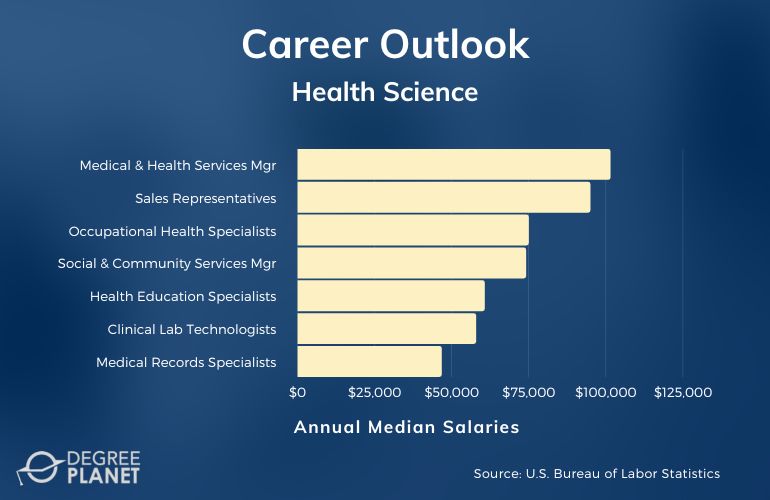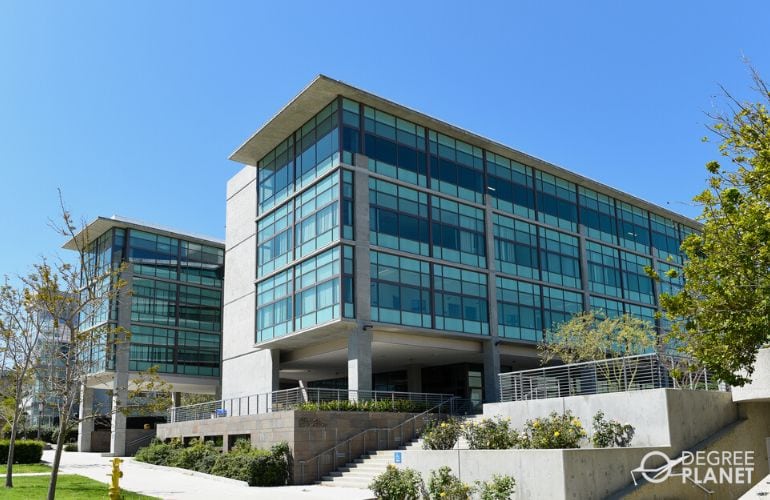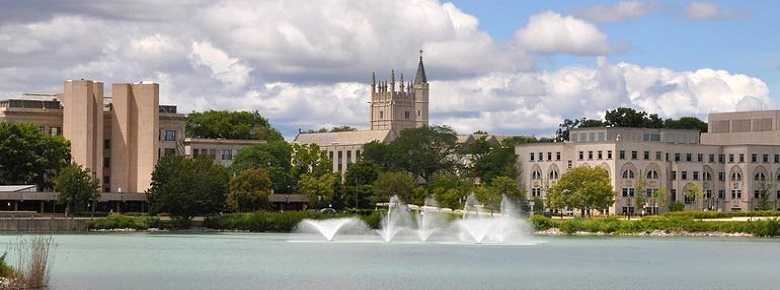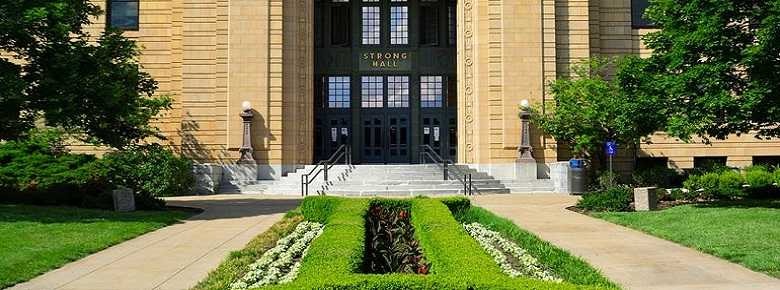A health science degree is a bachelor’s degree program for people who want to be equipped for leadership in the growing healthcare sector.

Whether you are brand-new to working in healthcare or have your sights set on career advancement, there could be a health science program that’s right for you.
Editorial Listing ShortCode:
When you study for a health science bachelor degree online, you’ll learn about medical terminology, anatomy, health promotion, program management, information technology, and more. This is a versatile degree that could help you build your career in the essential field of healthcare.
Online Health Science Degrees

Healthcare is a field that’s experiencing tremendous growth. If you want to pursue a career in healthcare, then an online bachelor’s degree in health science could be a way to get started. Health science studies are designed to give you a better understanding of the healthcare field and provide a leadership foundation for your career.
You’ll typically study:
- Communication
- Ethics
- Finance and economics
- Healthcare delivery
- Natural science
- Nutrition
- Professional pathways in healthcare
- Research
At some schools, this is a full, four-year bachelor’s degree, and you’ll take an assortment of general education and major-specific courses during your time in the program.
Other schools reserve this major for students who already hold a related associate degree. If you already work in a health profession, you could enroll to earn a bachelors degree. A bachelors may help you qualify for leadership positions.
Editorial Listing ShortCode:
Your program might include a variety of enriching experiences. Some schools include internships as part of the degree, and others give students a chance to get involved in research. There may also be a capstone project requirement, in which you formulate solutions to real-world issues faced by healthcare organizations. Health science degrees are useful for a variety of career paths.
It’s common for colleges to offer concentration tracks that help students get ready for various types of work. The concentrations may relate to technology, public health, or healthcare administration. There might also be pre-professional tracks, such as pre-physical therapy.
Studying health science could also help you launch other careers related to healthcare. Examples include:
- Pharmaceutical sales
- Public health leadership
- Health information management
- Hospital administration
This degree program is closely associated with allied health roles rather than careers in medicine. In other words, this degree path is not intended for those whose goal is to go to med school or become a dentist.
This degree is a great fit for other healthcare careers, though. It can act as strategic preparation for physical therapy, occupational therapy, or speech pathology school. Some colleges also have tracks that are appropriate for those entering nursing or physician assistant grad programs.
Common Online Bachelors in Health Science Concentrations

You could take an online health science bachelor degree in many different directions. To help you get ready for the career path of your choice, schools commonly offer concentration tracks. In a concentration, you’ll take several classes related to a specific subfield of health science. Common health science concentrations include:
- Gerontology. In an aging studies concentration, you can prepare to work with older adults in public health, counseling, long-term care, or therapeutic settings.
- Health and Fitness. The courses in this concentration might address exercise science, nutrition, kinesiology, and addiction treatment.
- Health Information Management. You’ll study data collection, organization, and analysis if you choose this concentration.
- Healthcare Administration. This leadership-focused program can help prepare you to run departments in hospitals, physicians’ practices, insurance companies, and public health agencies.
- Public Health. Through classes on epidemiology, program management, and public policy, you can learn to deliver health education and improve the well-being of communities.
There may also be a pre-professional concentration at your school. That might prepare you for a graduate program in physical health, nursing, or audiology.
Health Science Careers & Salaries

An undergraduate degree in health science could lead you in a variety of directions. Your previous experience and the courses you take might influence what you do after graduation.
If you’re coming into the bachelor’s degree program with experience in healthcare, your goal might be to become a leader in your industry. Perhaps you’ve already earned an associate degree and are licensed in an allied health field. Some incoming students might be dental hygienists, occupational therapy assistants, or radiology technicians.
Earning this bachelor degree could provide the catalyst to qualifying for a management role in your specific field. According to the Bureau of Labor Statistics, here are the median salaries of potential careers related to health science studies.
| Careers | Annual Median Salaries |
| Medical and Health Services Managers | $101,340 |
| Sales Representatives (Technical and Scientific Products) | $94,840 |
| Occupational Health and Safety Specialists and Technicians | $74,870 |
| Social and Community Services Managers | $74,000 |
| Health Education Specialists | $60,600 |
| Clinical Lab Technologists and Technicians | $57,800 |
| Medical Records Specialists | $46,660 |
| Community Health Workers | $46,590 |
| Fitness Trainers and Instructors | $40,700 |
| Medical Secretaries and Administrative Assistants | $37,450 |
Even if you’ve never worked in healthcare before, this degree could still lead to management opportunities. For example, graduates could work in hospital administration or social services planning. Certain study tracks could help prepare you for specific careers.
If you get a degree related to information management, you might become a medical records specialist or a health information technologist. Studying fitness might lead to working as the manager of a gym. Biology-related coursework might be useful for careers in pharmaceutical sales or scientific research.
Editorial Listing ShortCode:
There are many potential job settings for people with health science degrees. They include hospitals, doctor’s offices, and public health departments. Pharmaceutical companies, social agencies, residential facilities, and behavioral health services may also have positions.
With additional schooling, you might qualify for professional roles, such as working as an audiologist, an occupational therapist, or a speech-language pathologist. Courses in education could help qualify you to teach middle or high school health classes.
BS in Health Science Curriculum & Courses

For an online health science degree, you’ll typically complete about 120 credits. If you already have a related associate degree, you may be granted transfer credit toward your bachelor’s degree.
Common courses in this type of program include:
- Aging Services: This course will help you learn about the aging process and how you can support older adults as a healthcare professional.
- Anatomy and Physiology: As you study the human body, you may complete lab work or perform dissections.
- Health Communication: You’ll learn how to communicate with patients, colleagues, and the general public in clear and effective ways.
- Health Professions: This course will give you an overview of the career options in health sciences and survey the ways that different healthcare professionals work together.
- Healthcare Administration: There might be several classes related to management, finance, economics, and other business principles needed for healthcare leadership.
- Healthcare Law and Ethics: You’ll discuss federal healthcare policies, ethical decision-making, privacy issues, and more in a law and ethics class.
- Medical Terminology: You may study the vocabulary used in health and medical settings so that you’re prepared for a career among doctors, nurses, and other healthcare professionals.
- Nutrition: A course on human nutrition can equip you to guide others toward healthy, well-balanced food choices.
- Public Health: As you study public health, you may learn about health education, social services, epidemiology, and biostatistics.
- US Healthcare: You may have one or more classes about healthcare delivery, reimbursement, agencies, and policies in the United States.
Health science students often take specialized classes after completing the program’s core courses. Degree specialization, whether through electives or a concentration, allows you to prepare for specific types of jobs.
How to Choose an Online Bachelor’s in Health Science Program

Health science is a common bachelor’s degree program. You may even have your eye on several schools that appeal to you. To help you decide where to attend, you might consider the following factors:
- Concentrations. You may decide that a particular concentration track would be the best preparation for the career you have in mind.
- Flexibility. If you have a busy schedule, you might consider enrolling at a school where the virtual classrooms are accessible 24/7.
- Networking. You might want to select a school that has connections to major healthcare organizations. That could give you opportunities for internships, guest lectures, and other learning experiences.
- Organizations. Student health science clubs can help you interact with other students and put your classroom lessons into action. Even online students may be able to participate.
- Previous studies. At some colleges, the online health science program is only available for students who already have an associate degree and professional experience in an allied health field.
There are many accredited health science schools, so you can take your time to select the program that’s best for your interests and learning style.
Admissions Requirements

Getting into a college program for health sciences starts with submitting your various application documents. Common admissions requirements include:
- Application form — the school’s or the Common App
- Reference letters from professional supervisors or past teachers
- ACT or SAT test scores (only if required by your school)
- Transcripts from high school and any colleges you’ve been to
At some schools, an associate degree in a related field is an admission requirement.
Accreditation

To ensure you get a reputable online education, it’s strategic to select a regionally accredited college for your studies.
Regional accreditation is given only to schools that meet certain standards. Because the qualifications are strict, regional accreditation is widely respected in the world of higher education. Other colleges and universities often accept transfer credits or grad school applications from students who went to regionally accredited institutions.
Editorial Listing ShortCode:
Employers, licensing boards, and certification programs also appreciate and sometimes require degrees from accredited schools.
Financial Aid and Scholarships

As you get ready for college, it’s beneficial to fill out the Free Application for Federal Student Aid (FAFSA). This could determine your eligibility for valuable financial assistance for your studies.
The government has both grant and loan programs, and eligibility is based on financial need. In addition to federal funding, you may also qualify for help from your state. There may be scholarships that you can get too. Those may come straight from your college, or they may be awards that you win from outside organizations.
You can check into employer funding as well. Some workplaces have tuition assistance programs for workers who are getting a relevant degree.
What Is a Health Science Major?

A health science major is designed to prepare bachelor students for careers in the healthcare field. Some graduates with a health science degree want to become medical records specialists, healthcare managers, or public health educators.
To prepare for this field, you’ll study communication, health policy, anatomy, fitness, and healthcare management. This isn’t a medicine-specific degree, and it doesn’t lead to licensure. This means that you won’t qualify to become a nurse or a doctor after studying health science. The degree may pair well with an allied health career, such as being a physical therapist, but additional training would be needed as well.
Is Health Science a Good Major?
Yes, health science is a good major for many undergraduate students. This degree program can provide an entry path into the healthcare field.
Graduates may pursue a range of positions, from medical administrative assistant to public health program coordinator. Perhaps you started your career with an associate allied health program, such as respiratory therapy studies. If so, a bachelor’s degree in health science could be the next step toward leadership roles. Health science studies at the bachelor level could also lead to higher earning potential.
The Bureau of Labor Statistics states that health and medical services managers typically earn between $60,780 and $205,620 annually.
What Can You Do with a Health Science Degree?

Some people who study health science work on the business side of healthcare. They become medical records specialists, administrative assistants, or healthcare administrators.
Others opt for technical jobs. A health and science background could be useful for positions in pharmaceutical sales or lab research. Another route to consider is public health. The Bureau of Labor Statistics states that a bachelor’s degree is the common entry requirement for jobs in health promotion and education.
For those who already have an associate degree in an allied health field, this degree could help make them eligible for leadership roles in their departments. Also, some graduates of bachelor degree programs continue on and earn an on-campus or online masters in health science from one of the growing number of universities that offer this program. Some universities also offer on-campus or online PhD in Health Sciences programs.
Is a Health Sciences Degree Right for Me?

The studies in a health science program cover a little bit of everything. You’ll have science, business, and humanities courses. If you’re interested in a broad range of topics, this could be a program that works well for you.
Editorial Listing ShortCode:
There are many different applications for a health science degree, but they’re all typically related to healthcare. So, this type of degree program is beneficial for those who are committed to a healthcare career. Plus, if helping people is a priority for you, pursuing a healthcare role could be a way to accomplish that goal.
How Long Does It Take to Get a Bachelor of Health Science Online Degree?

Most bachelor’s degree programs, particularly on-campus ones, take 4 years to complete with full-time study. By getting your bachelors in health science online, you might be able to reach graduation sooner.
Online programs often choose a different academic calendar than campus-based schools. Most have course terms that are around 8 weeks long and are offered year-round. That way, you can take back-to-back classes throughout the year and try to complete your program sooner. If you transfer in an associate degree or previous college credits, your schooling could potentially be even quicker.
Is a Bachelor’s in Health Science Worth It?

Yes, a bachelor’s in health science is worth it for many professionals. By majoring in health science, you can prepare to contribute to the health and well-being of others.
Whether you pursue work as an administrator, a lab technician, a program director, a counselor, or an educator, you could have an impactful role to play. Healthcare is a growing field. Across all healthcare jobs, the Bureau of Labor Statistics projects 13% job growth over the next ten years.
Editorial Listing ShortCode:
Positions for medical services managers will see an even higher increase. Employment for that job category is expected to see 28% job growth over the same period (Bureau of Labor Statistics).
Universities Offering Online Bachelors in Health Science Degree Program
Methodology: The following school list is in alphabetical order. To be included, a college or university must be regionally accredited and offer degree programs online or in a hybrid format.

Excelsior University offers a Bachelor’s in Health Sciences. This degree may be an excellent option for students pursuing careers in settings like public health, long-term care, treatment centers, and hospitals. In addition to core major requirements, students may choose a specialty in Health and Wellness, Management, or Public Health. All classes meet entirely online.
Excelsior University is accredited by the Middle States Commission on Higher Education.

Liberty University offers a fully online program for a Bachelor of Science in Health Sciences. The curriculum covers concepts like human nutrition, survey of health professions, healthcare law and ethics, community health, and biostatistics. Each class is 8 weeks long. On average, students can complete the program’s 120 required credit hours in just 3.5 years.
Liberty University is accredited by the Southern Association of Colleges and Schools Commission on Colleges.

Northern Illinois University offers a Bachelor of Science in Health Sciences. Graduates of this program often become dental hygienists, physical therapy assistants, EMTs, respiratory therapists, or radiological technologists. After completing general education baccalaureate requirements, students must complete 34 credits specific to this major. The program utilizes a flexible, 100% online learning format.
Northern Illinois University is accredited by the Higher Learning Commission.

Northwestern University offers a Bachelor of Science in Health Sciences. The curriculum emphasizes cultural, communication, management, and leadership skills essential to work in this field. Students can choose a concentration in Strategic Management, Public Health, or Biology for Health Sciences. Regardless of specialty, all classes are held entirely online.
Northwestern University is accredited by the Higher Learning Commission.

Shawnee State University offers a Bachelor of Science in Health Science. Classes cover topics like healthcare ethics, US healthcare systems, management techniques, research design, and epidemiology. Each class is 7 weeks long and meets fully online. Typically, students can complete the program’s 120 required credit hours in 42 months of full-time study.
Shawnee State University is accredited by the Higher Learning Commission.

Southern California University of Health Sciences offers a Bachelor’s in Health Sciences. The program is designed to provide students with the skills to succeed in healthcare fields, such as physical therapy, dentistry, chiropractic care, or public health. Most students can complete their major-specific credits in 2 years of full-time attendance. This program is housed fully online.
Southern California University of Health Sciences is accredited by WASC Senior College and University Commission.

Southern New Hampshire University offers a Bachelor’s in Health Sciences. The program seeks to graduate students who will enhance patient care, make ethical decisions, and use strategic planning to improve healthcare. The program’s convenient online learning format gives students access to coursework around the clock. Students must complete 120 credit hours to graduate.
Southern New Hampshire University is accredited by the New England Commission of Higher Education.

Trident University International offers a Bachelor of Science in Health Sciences. Students can choose a general concentration or a concentration in Public Health in one of the following areas: Occupational Health, Health Care Administration, or Health Education. This program requires the completion of 120 credit hours. All classes utilize a fully online delivery mode.
Trident University International is accredited by the Higher Learning Commission.

The University of Kansas offers a 100% online program for a Bachelor’s in Health Science. The program recommends minors in Clinical Trials Management, Environmental Health, Nutrition, and Population Health. Most students can complete their requirements in just 4 years of full-time study. Graduates often pursue careers in allied health, public health, occupational therapy, healthcare administration, nutrition, or dentistry.
The University of Kansas is accredited by the Higher Learning Commission.

Utica University offers a Bachelor of Science in Health Sciences that can be earned online. The program boasts a flexible online learning model, around-the-clock technical support, and small class sizes. Most students can complete the program’s 120 required credit hours in 4 years. Classes cover core concepts like lifespan development, anatomy, health and wellness, clinical research, group dynamics, and ethics.
Utica University is accredited by the Middle States Commission on Higher Education.
Getting Your Bachelor in Health Science Online

Health science is an in-demand field that can lead you down a variety of health-focused career paths. This degree program could help you advance your current career, or it could help you break into the field if you’re new to healthcare.
Health science studies could also lay the foundation for an allied health graduate degree. Whatever your ambition, you might think about studying health science online. Online programs from accredited colleges offer quality coursework in a convenient manner.
You have goals, and online college courses can help you achieve them. Why not start checking out health science bachelor’s degree programs today?

